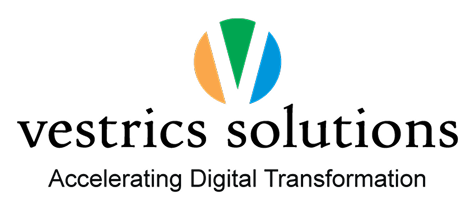How SAP Data Cloud Powers a Data-Driven Culture in Modern Enterprises
.jpg)
Are you making the most of your data? In today’s data-driven world, businesses must move beyond just collecting information - they need to transform it into actionable intelligence through advanced Data and Analytics Services. As organizations navigate the complexities of the digital landscape, the need for robust Data Analytics Solutions has never been more crucial.
SAP Business Data Cloud is designed to help businesses unify and integrate data from various sources, providing a single, trusted source of truth. By streamlining analytics and decision-making processes, organizations can create a truly data-driven culture, paving the way for smarter operations and better strategic outcomes.
Explore more in this blog to discover how SAP Data Cloud empowers businesses to unlock the full potential of their data.
What is SAP Business Data Cloud?
SAP Business Data Cloud is a robust, fully managed data platform that centralizes and governs all your SAP and third-party data sources. By creating a single, trusted source of truth, it empowers organizations to drive smarter, data-backed decisions at scale.
It empowers business leaders with the context they need to make well-informed and impactful decisions.
Key Capabilities:
- Unlock Valuable Insights: Leverage data-driven decision-making with business-specific, pre-configured applications that provide tailored insights.
- Integrate All Your Data: Consolidate mission-critical data across SAP and third-party systems into an open data ecosystem. This unified approach offers a deep, holistic understanding of your business through a robust semantic layer.
- Enable Trusted AI: Build a solid foundation for generative AI by ensuring data across your operations and applications is reliable, responsible, and relevant.
SAP Business Data Cloud: Unifying Data for Strategic Insights
The SAP Business Data Cloud serves as a comprehensive solution that brings together data from disparate sources into a cohesive, governed environment. This unification is crucial for organizations aiming to derive meaningful insights without the complexities of managing multiple data silos.
Key features of SAP Business Data Cloud include:
- Seamless Integration: It connects data from SAP applications and third-party sources, providing a holistic view of enterprise data. According to a recent study, businesses that integrate their data across systems experience a 20–30% increase in operational efficiency due to improved data accessibility and coherence.
- Governed Data Access: The platform ensures data governance, quality, and compliance through robust policies. A report from McKinsey indicates that 60% of organizations that implement strong data governance practices see a 25–30% reduction in compliance-related issues and operational risks.
- Real-Time Analytics: SAP Business Data Cloud supports real-time data processing, empowering businesses to make timely, informed decisions.
By leveraging these capabilities, enterprises can establish a solid foundation for their SAP Cloud Migration Strategy, ensuring that data remains consistent and reliable throughout the transition.
Empowering Analytics Through SAP and Databricks Collaboration
SAP's strategic partnership with Databricks enhances the analytical capabilities of the SAP Business Data Cloud.
Benefits of this integration include:
- Advanced Machine Learning: Utilize Databricks' machine learning frameworks to develop predictive models and gain deeper insights.
- Scalable Data Processing: Handle large volumes of data efficiently, ensuring that analytics can scale with business growth.
- Enhanced Collaboration: Facilitate collaboration between data scientists, analysts, and business users through unified platforms.
This synergy between SAP and Databricks positions enterprises to capitalize fully on their data assets, fostering a culture where data-driven decision-making is the norm.
Navigating SAP ECC to S/4HANA Migration
Transitioning from SAP ECC to S/4HANA Cloud Solutions represents a major milestone in an organization's digital transformation journey.
Key considerations for a successful SAP ECC to S/4HANA Migration include:
- Assessment and Planning: Conduct a thorough analysis of existing systems to identify areas that require transformation.
- Data Migration Strategy: Develop a comprehensive plan for transferring data, ensuring minimal disruption and data integrity.
- Training and Change Management: Prepare the workforce for new processes and systems through targeted training programs.
By addressing these areas, organizations can ensure a smooth transition to SAP S/4HANA Public Cloud, unlocking new efficiencies and capabilities.
Implementing Effective SAP Cloud Migration Strategies
A well-defined SAP Cloud Migration Strategy is essential for organizations seeking to leverage cloud technologies effectively. This strategy should encompass the following elements:
- Infrastructure Assessment: Evaluate current IT infrastructure to determine readiness for cloud adoption.
- Application Rationalization: Identify which applications are suitable for migration and which may require reengineering.
- Security and Compliance: Ensure that cloud solutions meet organizational security standards and regulatory requirements.
Core Capabilities of SAP Data Cloud That Drive Business Value
Cultivating a Data-Driven Organizational Culture
Adopting platforms like the SAP Business Data Cloud is more than a technology upgrade - it’s a catalyst for cultural transformation.
Strategies to promote this culture include:
- Leadership Advocacy: Leaders should champion data initiatives, demonstrating their value through strategic decisions.
- Employee Empowerment: Provide training and tools that enable employees at all levels to access and interpret data effectively.
- Continuous Improvement: Encourage feedback and iterative enhancements to data processes and systems.
Conclusion
In an era where data is a critical asset, leveraging comprehensive Data Analytics Solutions like the SAP Business Data Cloud is imperative for modern enterprises. These platforms not only streamline data management and analytics but also facilitate a cultural shift towards data-centric operations.
As organizations navigate the complexities of SAP Data Services Migration and SAP ECC to S/4HANA Migration, adopting a strategic approach ensures that technological advancements translate into tangible business value. By embracing these solutions, enterprises position themselves to thrive in a data-driven future.
About Vestrics Solutions
Vestrics Solutions, an SAP Gold Partner in India, boasts over 12 years of expertise in delivering scalable, smart ERP solutions. Specializing in SAP S/4HANA Cloud, SAP Business One, and Cloud ERP Migration Services, Vestrics Solutions helps SMEs streamline their operations and leverage data for better decision-making.
Trust Vestrics Solutions to guide your digital transformation with end-to-end support and expert consultancy.
Empower your business to grow with Vestrics Solutions, your partner for sustainable success.
Fuel Your Business Transformation with Our Insights
Bookmark this page for regular updates and explore how our expertise can accelerate your
transformation journey.

.svg)






